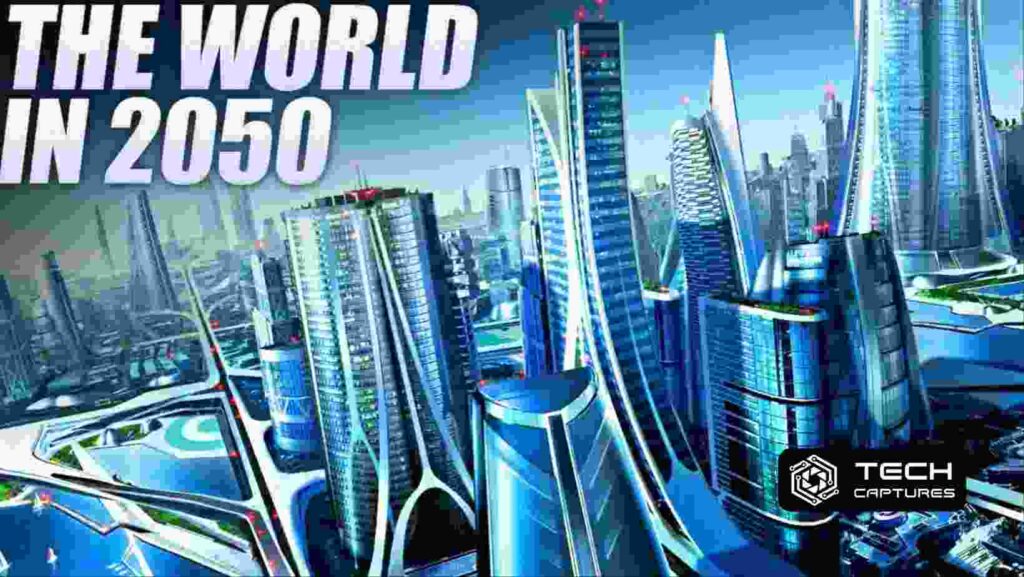Since the turn of the century, technological advancements have shaped our lives in ways we couldn’t have imagined. As we stand on the brink of 2050, let’s delve into the exciting possibilities that await us in the not-so-distant future.
Table of Contents
Nanotechnology: Connecting Minds to Machines
Nanotechnology has emerged as a game-changer, with experts envisioning a future where nanobots are seamlessly integrated into our brains. Through Brain-Computer Interface (BCI) technology, humans could become powerful entities, accessing information and problem-solving at unprecedented speeds. This could eliminate the need for conventional gadgets, transforming the way we learn and interact.
3D Print Technology: Building the Future Layer by Layer
The evolution of 3D print technology is set to revolutionize manufacturing by 2050. Currently, we witness 3D-printed tools and even homes, but the future promises advancements beyond our imagination. Envision printing tools, transportation modes, and even food. The prospect of an affordable 3D printer for food could be a groundbreaking solution to global hunger issues exacerbated by climate change.
Medical Marvels: Beyond Mortality and Disease
By 2050, medical breakthroughs might render death a thing of the past. The integration of BCI technology could allow the transfer of brain data, including memories, to a hard disk. This opens the possibility of preserving the minds of brilliant individuals in advanced humanoid robots. Additionally, the eradication of serious diseases, such as cancer, could reshape the landscape of healthcare, though accessibility remains a concern.
Transportation: Navigating a New Era
The future of transportation holds exciting prospects. With self-driving cars already in experimental phases, fully automated vehicles may dominate the roads by 2050. This shift promises a significant reduction in traffic-related fatalities and a change in lifestyle as individuals reclaim valuable time spent commuting. The Hyperloop One project adds another dimension, offering rapid, underground transportation at historic speeds.
Fueling Change: Renewable Energy in Transportation
Addressing global warming concerns, the future of transportation hinges on renewable energy. From self-driving cars to Hyperloop technology, the shift towards cleaner energy sources is evident. Companies like Bluerise are exploring ocean thermal energy conversion, aiming to eliminate fossil fuel usage and contribute to environmental sustainability.
Space Exploration: Beyond Our Horizons
Companies like SpaceX and Blue Origin are at the forefront of space exploration, envisioning colonies on other planets. By 2050, space tourism could become a reality, offering exclusive holiday destinations like Mars and the moon. While space exploration holds promise, the initial costs may limit such experiences to the affluent.
Artificial Intelligence: The Rise of Machines
Artificial Intelligence (AI) is advancing rapidly, with predictions of surpassing human brain processing power. However, ethical considerations remain paramount. The integration of AI into the workforce could lead to significant job market shifts, challenging individuals to adapt to a more interconnected and data-driven world.
Education: Evolving Learning Landscapes
The job market’s transformation will impact education significantly. Digital learning, already on the rise, could evolve into completely digital schools by 2050. More than 70% of students might enroll in online degrees facilitated by powered robots capable of teaching and managing educational processes.
The Metaverse: A Virtual Frontier
The metaverse, a fusion of virtual reality and AI is set to redefine how we experience the world. By 2050, it could offer immersive virtual experiences, from shopping to travel, accessible from the comfort of our homes. The metaverse’s evolution might bring people together in a virtual space while physically apart.
The Evolution of Money: A Cashless Society Beckons
In 2050, the use of physical currency might become obsolete. Virtual transactions, fueled by AI and decentralized finance, could redefine financial interactions. Automated systems, akin to Tesla ordering car parts, might extend to our daily lives, with automated pantries ensuring we always have essentials.
Real Estate: Homes of Tomorrow
Homes in 2050 will embrace complete automation. Smart homes with AI activation functions will anticipate our needs without explicit commands. Interactive hologram televisions, controlled by nanotechnology, will provide a futuristic entertainment experience. These advancements promise a seamless integration of technology into our daily lives.
Conclusion
As we gaze into the potential landscape of 2050, one thing is clear: the future is poised for remarkable transformations. While only some projections may come to fruition, the seeds of these technologies have already been planted. Our challenge lies in adapting societal structures to harmonize with these impending innovations. What are your thoughts on these future possibilities? Share your insights and join the conversation about the exciting world that awaits us in 2050!

